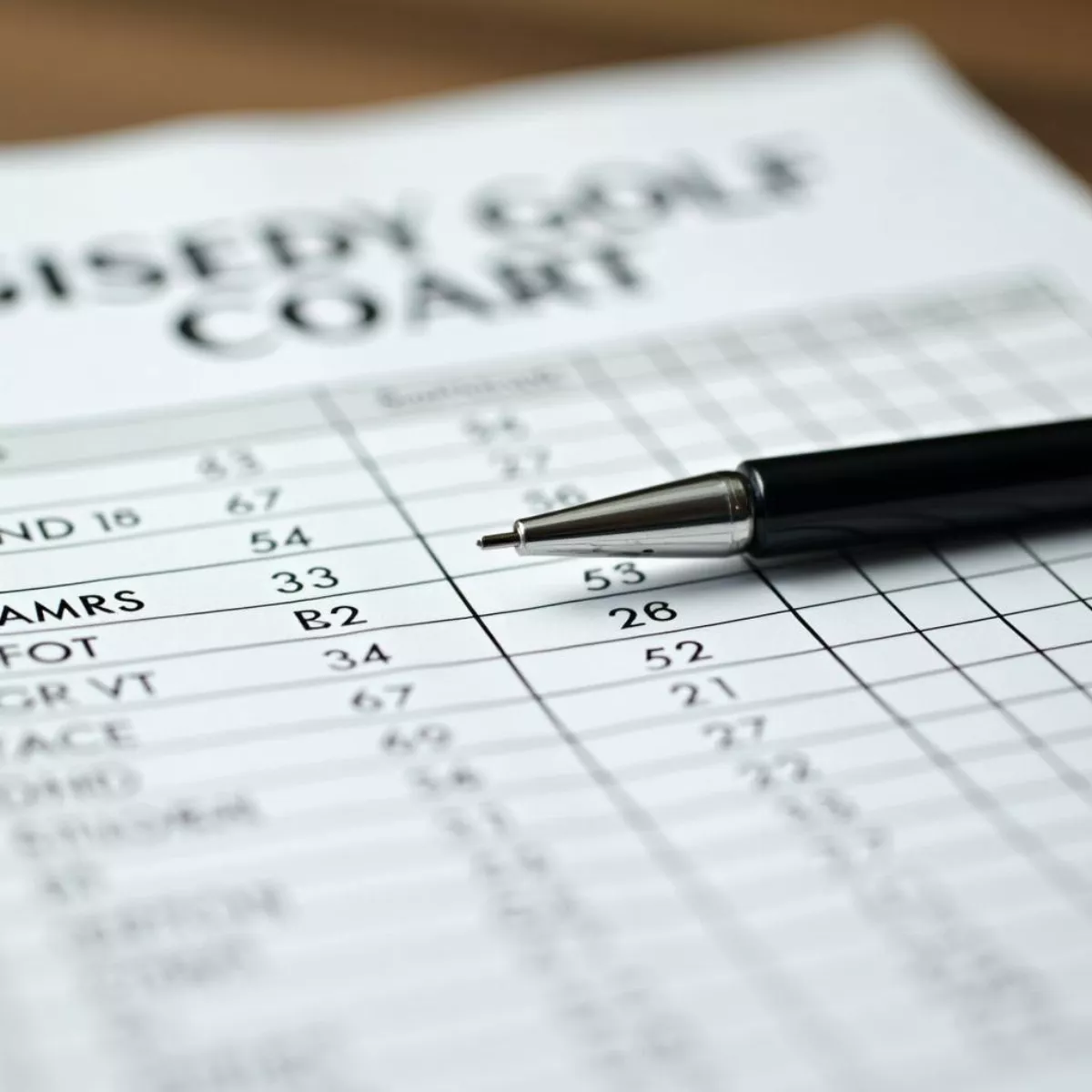Golf can be a complex and nuanced sport, especially when it comes to calculating scores and understanding your handicap. If you’re a bogey golfer, navigating the world of handicaps is essential for enjoyment and improvement. In this article, we’re diving deep into what a handicap for a bogey golfer is, how it affects your game, and what you need to know to enjoy golf to the fullest.
What is a Bogey Golfer?
A bogey golfer is someone who typically finishes a round of golf with a score that is one stroke over par on each hole. For example, if you’re playing a par 72 course, a bogey golfer will generally shoot in the range of 80 to 90. Understanding your classification can help you progress in your game and set realistic goals.
What is a Handicap?
A handicap in golf is a numerical measure of a golfer’s potential ability. It allows players of different skill levels to compete fairly against each other. The lower the handicap, the better the golfer. Here’s how it works for a bogey golfer:
- The average score is calculated based on a golfer’s best scores over recent rounds.
- The handicap index is then derived from these scores, allowing golfers to adjust their score based on course rating and slope.
Why is it Important?
- Standardization: Handicaps provide a way for players of different abilities to compete on a level playing field.
- Goal Setting: A handicap can serve as motivation to improve your game, offering a clear target for players to aim for.
- Participation: Many tournaments require a valid handicap for entry, making it essential for competitive play.
Calculating Your Handicap
To understand what a bogey golfer’s handicap is, we need to break down the calculation process. The U.S. Golf Association (USGA) maintains a standardized formula that can help determine your handicap index.
Steps to Calculate Your Handicap:
- Record Your Scores: Keep track of your scores over at least 20 rounds.
- Determine Your Adjusted Gross Score (AGS): This is your total score adjusted for any double bogeys or higher scores.
- Calculate the Score Differential:
[
text{Score Differential} = frac{text{AGS} – text{Course Rating}}{text{Slope Rating}} times 113
]- The Course Rating reflects the expected score for a scratch golfer.
- The Slope Rating measures the difficulty of a course for a bogey golfer compared to a scratch golfer.
- Average the Lowest Differentials: Take the lowest 10 of your differentials (if you have 20 scores recorded) and average them.
- Multiply the Average by 0.96 to get your handicap index.
Example Calculation:
| Factor | Value |
|---|---|
| Adjusted Gross Score | 85 |
| Course Rating | 72 |
| Slope Rating | 130 |
Score Differential:
[
text{Score Differential} = frac{85 – 72}{130} times 113 = 10.55
]
Assuming you had this score differential among others, after averaging and applying the 0.96 factor, you’d have your final handicap index.
 Golf Scorecard
Golf Scorecard
What is the Average Handicap of a Bogey Golfer?
Typically, a bogey golfer will have a handicap index ranging from 10 to 20. This means that if you’re targeting to be a bogey golfer, you should aim to achieve a handicap in this range.
Why the 10 to 20 Range?
- A handicap of 10 means you’re often hovering at par, with only some rounds resulting in a score of one stroke over.
- A handicap of 20 indicates more variability, where you often score towards the higher end of the bogey golfer spectrum.
 Golf Course and Flag
Golf Course and Flag
Tips to Improve Your Handicap
If you’re looking to become a better player, here are some practical tips:
- Practice Regularly: Consistent practice helps in refining your skills. Focus on both long and short games.
- Play Different Courses: This helps you understand various challenges and improve your adaptability.
- Analyze Your Rounds: Keep track of where you lose strokes and make adjustments in your practice.
- Take Lessons: A professional instructor can provide valuable insights geared towards improving your weaknesses.
- Stay Mentally Strong: Golf is as much a mental game as it is physical. Mental resilience can help reduce unnecessary spillover.
Key Rules Surrounding Handicaps
- Updating Handicaps: Make sure to update your handicap regularly as you improve or struggle.
- Matching Formats: When competing, ensure your opponent’s handicap is also accurate and current.
Key Takeaways
- A bogey golfer typically has a handicap index between 10 and 20.
- The handicap is calculated based on the average of your lowest score differentials.
- Regular practice and analysis are essential in improving your scores and lowering your handicap.
 Golfer Celebrating
Golfer Celebrating
Frequently Asked Questions (FAQs)
- What is the maximum handicap for amateur golfers?
- The maximum theoretical handicap index is 36.4 for men and 40.4 for women.
- Can I have multiple handicaps for different types of play?
- Yes, but officially, you should only have one handicap index that reflects your best potential.
- How often should I update my handicap?
- It’s recommended to update your handicap after every round played, especially for competitive play.
- What happens if I exceed my stated handicap?
- If you’re consistently scoring below your stated handicap, consider adjusting it (it should represent your potential).
- Is there a significant advantage having a lower handicap?
- Yes, lower handicaps indicate better playing ability, giving you an edge in most formats of play.
- Do different golf associations have different calculation methods for handicaps?
- Yes, while many follow the same principles, always check with your local association for their specific rules.
- Can weather affect my handicap?
- Yes, playing conditions can impact your score but be sure to record your scores consistently regardless of these factors.
- Is it possible to play without a handicap?
- Yes, but participation in many tournaments or competitions usually requires an established handicap.
- What is the best way to track my scores?
- Utilize golf apps or score tracking software to keep your scores organized and easy to reference.
- Should I worry about my handicap if I am a beginner?
- At first, focus on enjoyment and improvement without stressing over handicaps. They’ll matter more as you progress.
By understanding the handicap of a bogey golfer, you can enhance your enjoyment and performance in golf. Remember, every swing, every round, and every score counts toward becoming not just a better golfer, but a more satisfied player on the course. Happy golfing!

